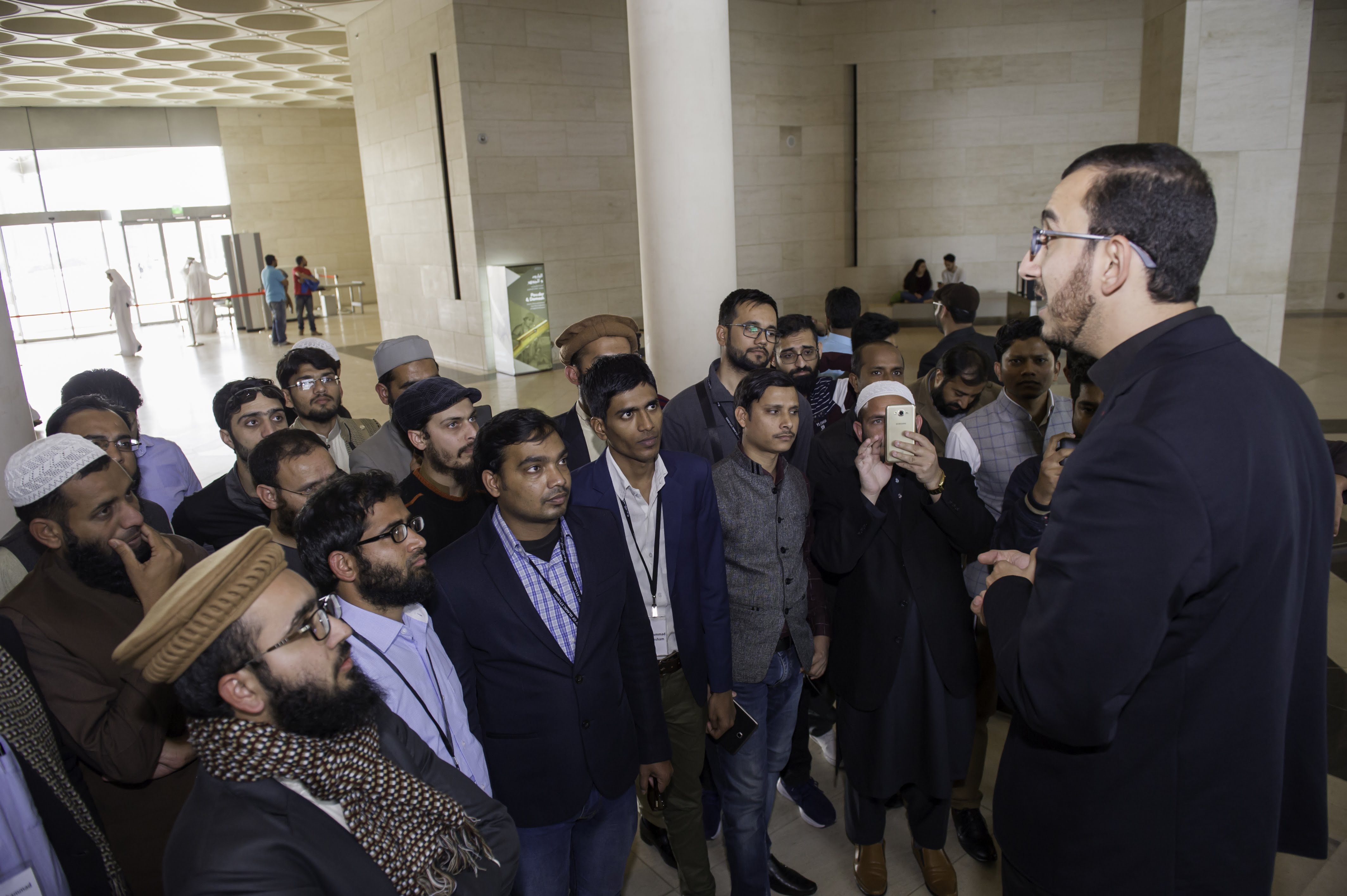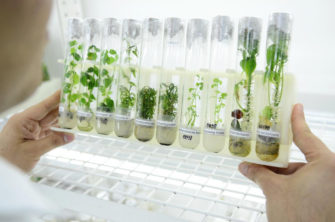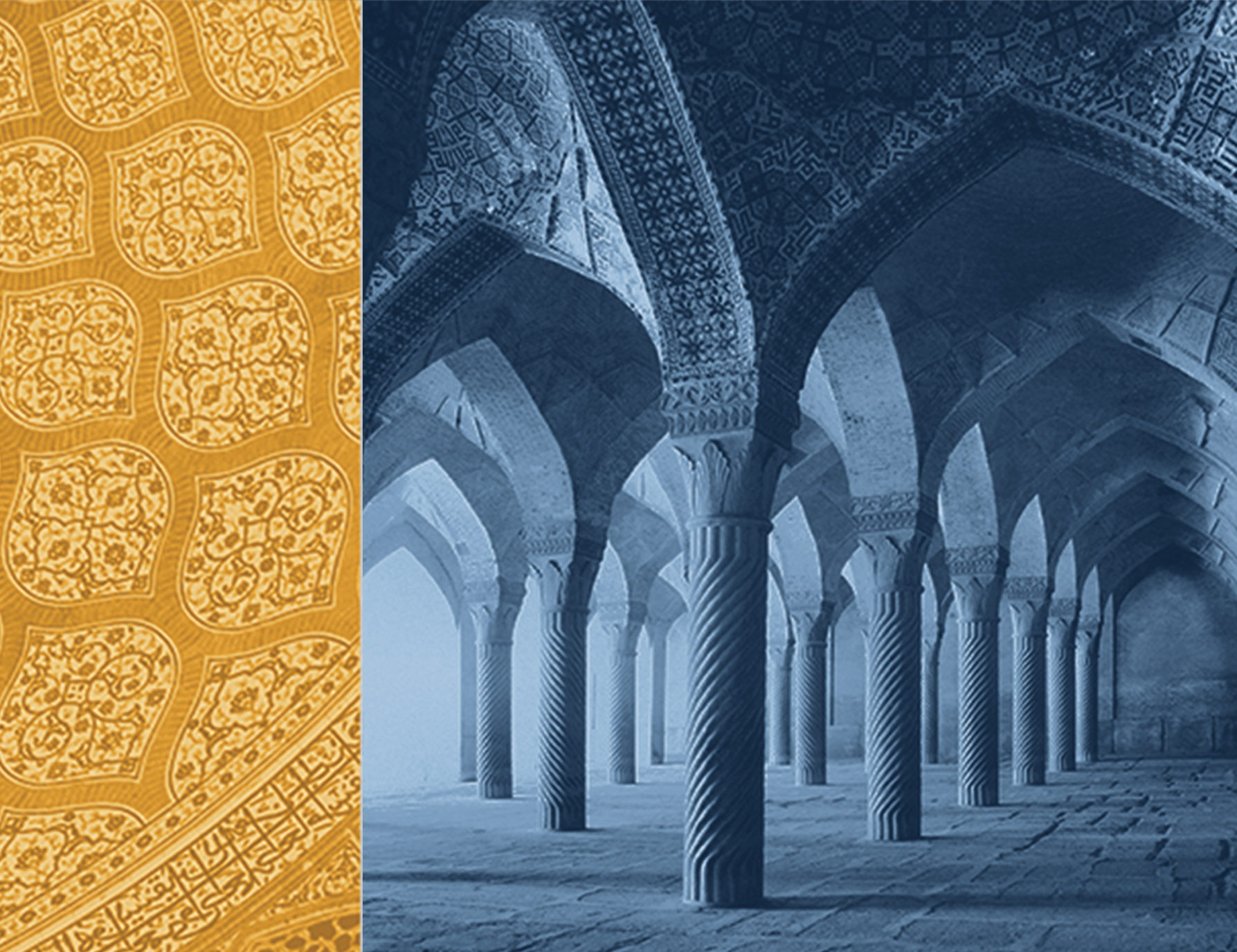
It’s 10am on a Sunday morning in October. The previous evening, I had stood on metal bleachers for three and a half hours to watch the Notre Dame football team beat USC in a sound victory. The student body is still recovering from the previous night’s festivities, and campus is quiet. I’m sitting outside to take advantage of one of the last truly warm days of the year. With my headphones in, I have one eye on my frantically scribbled notes and the other on my computer screen. A lively conversation is taking place, and I don’t want to miss a word. Today’s topic is genetic engineering.
“It’s not that it interferes with nature, or God’s will,” says Hafiz Rehman. He steeples his fingers beneath his nose, pausing before he continues. “It harms society. It changes the structure of the family.”

“No, that’s not right,” responds Waqas Ahmad. His face fills the screen. He always leans slightly forward when he’s speaking. “It won’t change the family unit. This technology is worth the risk as long as the disease in question is fatal.” We have been speaking for nearly an hour. The conversation began with a brief introduction to the topic of CRISPR technology and then developed into a debate on the positive and negative aspects of using this technology to develop new treatments for diseases by editing patient genomes. This discussion is our sixth of the semester, and the rhythms of our conversation have developed to the point of familiarity. Interruptions occur less frequently, and there are fewer silences. I remember the difficulty of maintaining natural conversation in our first meeting, even when we were only introducing ourselves. Now we are able to debate the ethical nuances of a complex medical technology with ease. Some moments are even humorous. “I’m sure we’d all like to have been born smarter or more attractive,” Waqas says with a smile. Everyone laughs.
This component of the Madrasa Discourses project, the weekly discussions between Notre Dame undergraduates and madrasa students from India and Pakistan, proves the valuable role of relationships in facilitating transformational intercultural understanding. Many challenges appear in the course of pursuing these relationships, but the potential rewards are worth the obstacles that may arise as a result of this pursuit. Relationships are formed in conversation because “dialogues are transformational processes” that challenge participants to defend their ideas and find points of commonality (Botes 13). The ability to communicate with those of diverse backgrounds and cultures is a crucial skill for the peace activist. Sustainable peace must be upheld at multiple levels of society, from institutions to individuals. The concept of strategic peacebuilding includes dialogue as a critical component of the process. The ability to converse with others creates a dynamic that “redefines the norms that the actors follow in their interactions with each other, and demarcates the boundaries of their relationship” (Botes 8). Thus, the discussion element of the Madrasa Discourses is an important step toward the project’s goal of introducing new modes of thought to students from both the madrasa and Notre Dame.
My experience with the Madrasa Discourses project marked the first time that I had engaged in prolonged theological discussion with students who represented religious and cultural backgrounds that greatly differed from my own. Sometimes we struggled to understand each other, hindered by language and cultural barriers. At other times, we reached moments of true consensus. In our conversation on whether natural disasters were punishments from God, we all agreed that they were not. Our reasoning differed but our conclusion was the same. This semester, I have put a great deal of thought into the purposes of these discussions. I have tried to consider how they connect to the theories that I have explored in my peace studies classes. In a course on nonviolent action in social movements, I learned that social change stems from actors that “extend well beyond the polity to other institutional spheres and authorities” (Snow, et al. 7). The madrasa is one such institutional sphere, and it has a potentially critical role to play in the international drive toward peace. In our conversations, madrasa students often expressed interest in understanding the Western, and particularly the American, view of Islam. They also indicated their desire to change the negative stereotypes around Islam and its practices that they have seen in Western media. This is the work of the Madrasa Discourses, which seeks to broaden viewpoints and stimulate discussion and critical thinking.
The development of a mutual understanding between our diverse groups has allowed our interactions to flourish. The educational aspect of the project exposes madrasa students to scientific, historical, and theological theories that may not have featured in their madrasa curriculum. My own base of knowledge regarding Islam and my ability to formulate and critique the structure of an argument have similarly grown. This mutual development of ideas has shown me that productive interactions occur between parties that understand and are willing to learn from one another. Thus, the work of the Madrasa Discourses, practiced at a small scale with relatively few participants, illuminates the centrality of relationship building within the broader frame of negotiation and debate.
This specific focus on relationships is a central element of many peacebuilding theories, particularly conflict transformation. These “relationships represent a web of connections that form the broader context of the conflict” (Lederach 5). Therefore, in order for the dynamic of conflict to change, the interactions between individuals must change. The challenge is to identify the best way to provoke this change. Once again, I return to the idea that relationships are formed and changed in dialogue. Therefore, our goal should be to “minimize poorly functioning communication and maximize mutual understanding” (Lederach 6). I found that the work of this project was a continual struggle toward this goal. Occasionally I left discussions feeling that we had made substantial progress in pursuit of our mutual understanding of our separate perspectives. In our conversation on the ethics of artificial wombs, the madrasa students in my group acknowledged my belief that pregnancy could limit a woman’s ability to pursue positions of authority in her workplace. I myself was led to consider how artificial wombs might change our understanding of parenthood or human dignity.
Conflict transformation directly targets societal problems and views these “issues as an expression of the larger system of relationship patterns” (Lederach 9). As relationships change, so do social norms. I learned firsthand about how important it is to “develop a capacity to hear and engage the voice of identity and relationship” (Lederach 16). Our views are shaped by our backgrounds, and when these come into conflict we must consider how our underlying values stimulate such differences. One of the more discouraging discussions revolved around the rights of women in society. The students from India and Pakistan expressed their shared idea that women best contributed to society when they took on domestic roles and did not join the workforce. I struggle to understand this point of view, but I also realize that they do not view this role of women as being lesser than that of men. In their understanding, the two genders serve their community in manners that are different in kind but not in value. I still find myself reflecting on that particular conversation. It was our most contentious discussion, and I found little common ground to share with the madrasa students in the conversation. However, it is precisely due to these challenging conversations that relationships need to develop. We must navigate our differences if we wish to find sustainable peace.
Peace can only be reached through partnerships and coalitions. When analyzing the role of individuals and institutions in peacebuilding, it has been found that “none of these actors, considered in isolation from the others, has provided the conditions for a sustainable and comprehensive peace” (Lederach and Appleby 26). Therefore, relationships are necessary for peace. Specifically, relationships that constitute the “flowing together of people and processes who would not normally come together” are necessary for peace (Lederach and Appleby 27). It is in these interactions between unlike peoples that the foundations for positive new structures are laid. The Madrasa Discourses project represents an example of how dialogues between diverse individuals can lead to relationships that foster mutual understanding. In some cases, that understanding may even lead to friendship. At the conclusion of our conversation on natural disasters, I was about to end the meeting when Hafiz stopped me.
“I want to teach you an Arabic word that we can use to end our discussions from now on,” he said. “It’s inshallah. God willing.”
“Inshallah,” I repeated. “God willing.”

